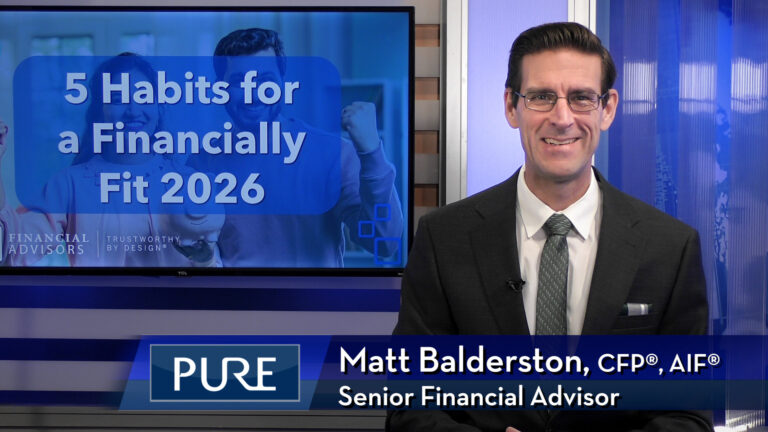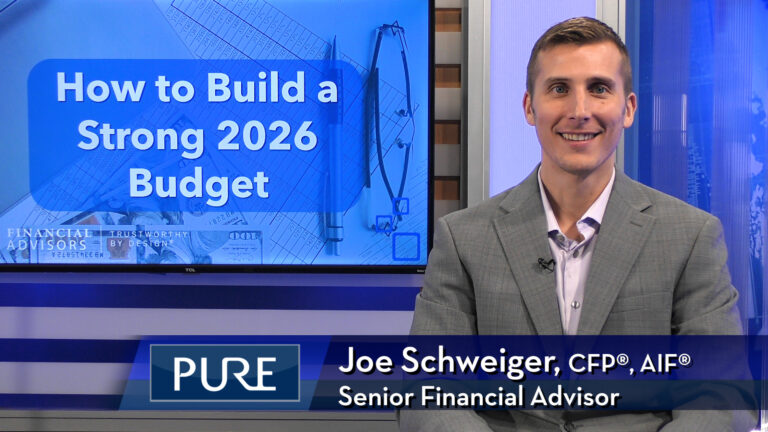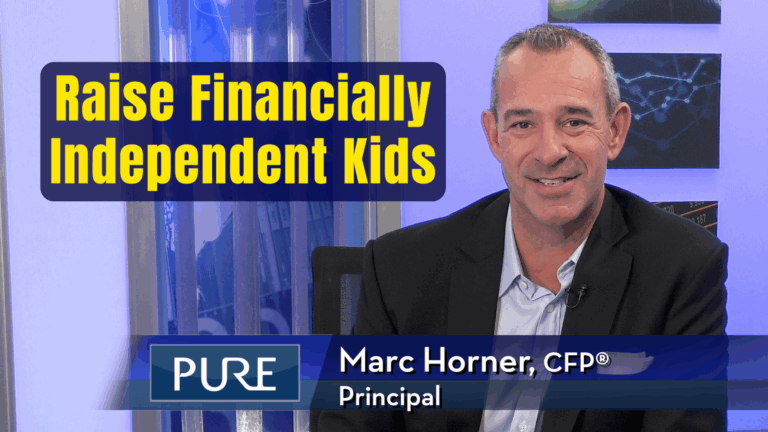Medicare is a complex program that has many parts and options to choose from. Pure’s Financial Planner, Rachel Füss, CFP®, AIF® walks you through common Medicare mistakes that you should avoid. Take the time to learn, and you’ll safeguard your retirement health coverage without overspending
FREE GUIDE | Medicare Check-up Guide
Transcript
Medicare is a multipart program, and it’s easy to make mistakes that could be detrimental to your health and pocketbook. Here are some of the most common missteps when it comes to navigating Medicare.
Not signing up for Medicare on time
Whether or not you’re claiming Social Security Benefits, if you don’t sign up for Medicare within 3 months before or after your 65th birthday, you might face gaps in coverage or penalties.
Not enrolling in Medicare Part B enrollment
Most people need to enroll in Medicare Part B during the initial enrollment period. The only way to delay Medicare Part B is if you have health insurance from your current employer or your spouse’s current employer. Everyone pays a premium for Medicare Part B. How much you pay depends on your income and when you enroll.
Assuming that your spouse is covered just because you have Medicare is a big mistake. Medicare coverage doesn’t work like employer-based coverage. It doesn’t cover the entire family. It only applies to an individual. However, a non-working spouses can qualify at age 65 as long as their spouse has been in the workforce for at least 10 years.
Not enrolling in a separate Part D prescription drug plan with original Medicare
If you don’t enroll in Part D when you’re first eligible, you could face a penalty and gaps in coverage.
Delaying your purchase of a Medigap policy
Medigap policies help cover the gaps in original Medicare coverage, but if you don’t buy one during your open enrollment period, you could face higher premiums or be denied coverage altogether.
Not understanding how Medicare coordinates with your current coverage
If you have other health insurance besides Medicare, it’s important to understand how the two programs work together so that you can avoid costly mistakes.
Automatically review plan before renewal your plan without reviewing what suits you as time goes on
Open enrollment is an opportunity to review all your options and make changes as needed. The cost and coverage can vary a lot from year to year, so it’s important to compare all the plans available in your area during open enrollment. Your health needs may also change over time, so it’s important to review your coverage each year during open enrollment and make changes as needed.
Not managing the Medicare high-income surcharge
Medicare premiums are graduated meaning the more income you make, the higher your premium will be for parts B and D and there’s a two-year lookback. So, the premiums you pay this year are based on your income from two years ago.
Medicare is a complex program that has many parts and options to choose from. It’s important to spend time learning about its intricacies so your medical health coverage is covered in retirement without having to spend too much out of pocket. To see how Medicare plays a crucial role in your overall retirement planning, take advantage of Pure’s free financial assessment.
Subscribe to our YouTube channel.
IMPORTANT DISCLOSURES:
• Investment Advisory and Financial Planning Services are offered through Pure Financial Advisors, LLC, a Registered Investment Advisor.
• Pure Financial Advisors LLC does not offer tax or legal advice. Consult with your tax advisor or attorney regarding specific situations.
• Opinions expressed are subject to change without notice and are not intended as investment advice or to predict future performance.
• Investing involves risk including the potential loss of principal. No investment strategy can guarantee a profit or protect against loss in periods of declining values.
• All information is believed to be from reliable sources; however, we make no representation as to its completeness or accuracy.
• Intended for educational purposes only and are not intended as individualized advice or a guarantee that you will achieve a desired result. Before implementing any strategies discussed you should consult your tax and financial advisors.
CFP® – The CERTIFIED FINANCIAL PLANNER™ certification is by the Certified Financial Planner Board of Standards, Inc. To attain the right to use the CFP® designation, an individual must satisfactorily fulfill education, experience and ethics requirements as well as pass a comprehensive exam. Thirty hours of continuing education is required every two years to maintain the designation.
AIF® – Accredited Investment Fiduciary designation is administered by the Center for Fiduciary Studies fi360. To receive the AIF Designation, an individual must meet prerequisite criteria, complete a training program, and pass a comprehensive examination. Six hours of continuing education is required annually to maintain the designation.













